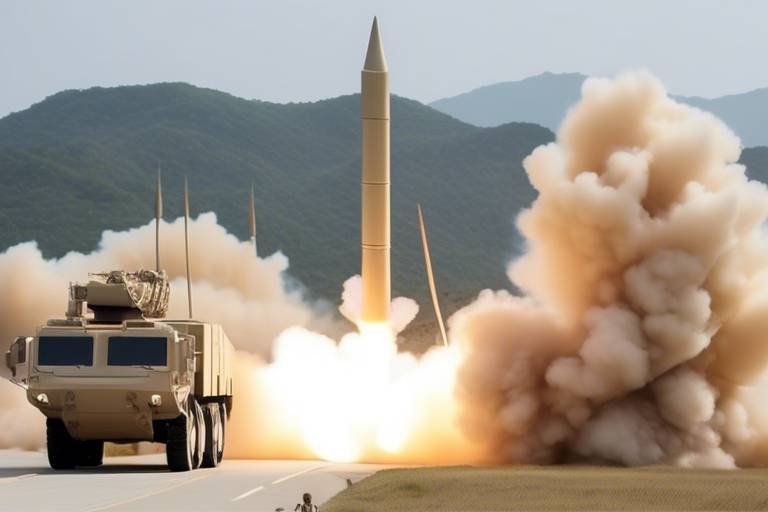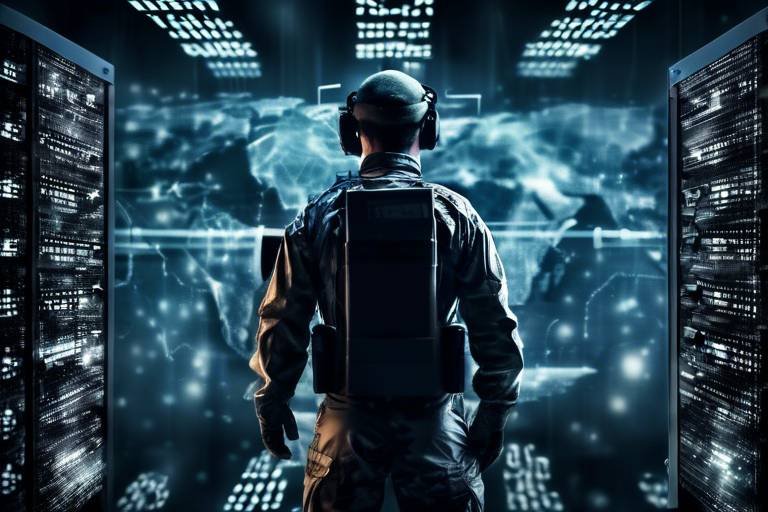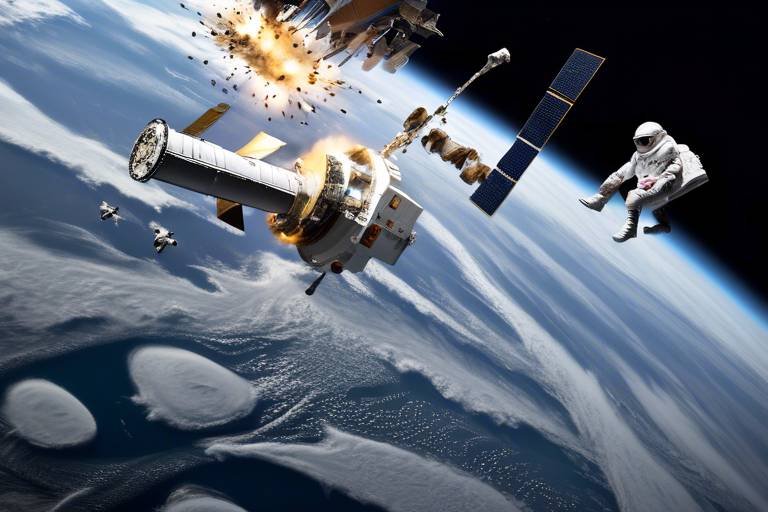The Future of Maritime Defense Strategies in Global Security
As we sail into the future, the landscape of maritime defense is undergoing a remarkable transformation. With the waves of change driven by technological advancements, shifting geopolitical dynamics, and the pressing need for international collaboration, the strategies we employ to safeguard our seas are evolving at an unprecedented pace. The maritime domain is not just a vast expanse of water; it is a lifeline of global trade, a battleground for territorial disputes, and a critical theater for national security. As such, understanding these emerging strategies is vital for any nation looking to protect its interests and maintain stability on the high seas.
In recent years, the world has witnessed a surge in innovative technologies that are reshaping how countries approach maritime defense. From autonomous vessels that can operate without human intervention to drones that provide real-time surveillance, these advancements enhance situational awareness and operational effectiveness. Imagine a fleet of unmanned ships patrolling the waters, equipped with sensors that can detect threats before they materialize. This is not science fiction; it is the new reality of maritime defense.
However, it is essential to recognize that technology alone cannot safeguard our waters. The geopolitical influences that shape maritime security are equally important. The world is experiencing a shift in power dynamics, with countries vying for dominance over strategic waterways. For instance, the South China Sea has become a hotbed of tension, where territorial disputes threaten not only regional stability but also the security of global shipping routes. Countries must adapt their maritime strategies in response to these challenges, ensuring they are not only reactive but also proactive in protecting their interests.
- What are the key technologies shaping maritime defense?
Emerging technologies include autonomous vessels, drones, and advanced surveillance systems that enhance situational awareness and operational effectiveness. - How do geopolitical factors influence maritime security?
Shifts in power dynamics and regional tensions necessitate adaptive responses from nations to safeguard their interests and maintain global stability. - Why is international cooperation important in maritime defense?
Collaborative efforts among nations help enhance collective security and deter potential threats in contested waters. - What role does international law play in maritime defense?
International maritime law, such as the United Nations Convention on the Law of the Sea, guides nations in their rights and responsibilities on the high seas.
As we look to the horizon, it becomes clear that the future of maritime defense will require a multifaceted approach. Nations must not only invest in cutting-edge technologies but also foster alliances and partnerships that enhance collective security. The importance of international collaboration cannot be overstated; it is through shared knowledge and resources that countries can effectively address the challenges posed by a rapidly changing maritime environment.
Moreover, as we navigate the complexities of maritime defense, we must not overlook the impact of environmental considerations. Climate change is reshaping our oceans, leading to new security challenges related to resource competition. It is imperative that defense strategies integrate sustainable practices, ensuring that we protect not only our national interests but also the maritime ecosystems that are vital for future generations.
In this ever-evolving landscape, cybersecurity has emerged as a critical component of maritime operations. With increasing reliance on technology, protecting critical infrastructure from cyber threats is essential to maintain operational integrity and national security. The stakes are high, and nations must prioritize cybersecurity measures to safeguard their maritime assets.
Finally, investing in training and capacity building for maritime forces is crucial. As new technologies and threats emerge, personnel must be equipped with the skills and knowledge to tackle complex maritime security challenges. This ongoing investment ensures that nations are prepared to respond effectively to any situation that may arise on the high seas.
As we chart our course into the future, it is clear that maritime defense strategies must be dynamic and adaptable. By anticipating future trends, such as increased automation and artificial intelligence, countries can develop effective strategies that address both current and emerging security challenges. The future of maritime defense is not just about technology; it is about collaboration, sustainability, and a commitment to securing our shared maritime spaces.

Emerging Technologies in Maritime Defense
In the ever-evolving landscape of maritime defense, emerging technologies are not just enhancing existing strategies; they are revolutionizing them. Imagine a world where autonomous vessels patrol the seas, drones provide real-time surveillance, and advanced systems analyze vast amounts of data to ensure national security. This is not a distant future but a reality that is unfolding before our eyes. The integration of these technologies is reshaping how nations protect their interests on the high seas, making it imperative for military and defense agencies to adapt quickly.
One of the most significant advancements is the use of autonomous vessels. These unmanned ships can operate without human intervention, conducting surveillance, reconnaissance, and even logistical support. They can cover large areas of ocean with minimal operational costs and risks to human life. For instance, the U.S. Navy has been testing the Sea Hunter, an autonomous ship designed to hunt submarines and conduct anti-surface warfare. The potential for these vessels to gather intelligence and engage in combat operations is a game-changer.
Additionally, drones are becoming indispensable in maritime operations. Equipped with sophisticated sensors and cameras, they provide unparalleled situational awareness. Drones can monitor vast stretches of ocean, track suspicious activities, and even assist in search and rescue operations. Their ability to relay real-time data back to command centers allows for quicker decision-making and more effective responses to threats. For example, the integration of drones in the South China Sea has enabled nations to monitor territorial disputes more closely, providing evidence of incursions and enhancing their diplomatic stance.
Moreover, advanced surveillance systems are crucial in ensuring maritime security. Technologies such as satellite imagery and radar systems have improved significantly, allowing for better tracking of vessels and monitoring of maritime traffic. These systems can detect illegal fishing, smuggling, and even piracy, which are pressing issues in many regions. By employing a combination of these technologies, nations can create a comprehensive defense network that enhances their maritime capabilities.
However, while these technologies offer numerous advantages, they also present new challenges, particularly in the realm of cybersecurity. As maritime operations become increasingly reliant on technology, the risk of cyber-attacks grows. Protecting critical infrastructure from cyber threats is essential to maintaining operational effectiveness. Therefore, nations must invest not only in technological advancements but also in robust cybersecurity measures to safeguard their maritime assets.
In conclusion, the integration of emerging technologies in maritime defense is reshaping the future of global security. As nations strive to protect their interests at sea, the importance of these innovations cannot be overstated. They offer unprecedented capabilities but also require a commitment to cybersecurity and international cooperation. The maritime domain is becoming more complex, and the strategies employed must evolve to keep pace with these changes.
- What are autonomous vessels? Autonomous vessels are unmanned ships that can operate independently without human intervention, performing tasks such as surveillance and reconnaissance.
- How are drones used in maritime defense? Drones are used for real-time surveillance, monitoring maritime traffic, and assisting in search and rescue operations.
- What role does cybersecurity play in maritime operations? Cybersecurity is vital to protecting critical infrastructure from cyber threats that could disrupt maritime operations and national security.

Geopolitical Influences on Maritime Security
The world today is an intricate tapestry of shifting power dynamics and regional rivalries, all of which significantly influence maritime security strategies. As nations jockey for position in the ever-evolving geopolitical landscape, the need for robust maritime defense becomes increasingly critical. The oceans, which cover over 70% of our planet, serve as vital arteries for international trade, energy supplies, and military operations. With these interests at stake, the implications of geopolitical changes on maritime security cannot be overstated.
One major factor is the rise of new powers, particularly in the Asia-Pacific region. Countries like China are expanding their naval capabilities and asserting territorial claims in contested waters, such as the South China Sea. This has led to heightened tensions not just with neighboring nations but also with global powers like the United States, which has a vested interest in maintaining freedom of navigation. The situation is akin to a high-stakes chess game, where each move can have far-reaching consequences, impacting trade routes and international relations.
In addition to territorial disputes, the geopolitical landscape is also shaped by alliances and partnerships. For instance, NATO's involvement in maritime security has evolved to address new threats, including piracy and terrorism. Collaborative efforts among nations are essential for deterring potential threats and ensuring a stable maritime environment. The following table illustrates some key alliances and their roles in maritime security:
| Alliance/Partnership | Key Focus Areas | Member Nations |
|---|---|---|
| NATO | Collective defense, counter-piracy, and deterrence | 30 member countries, including the US, UK, Canada |
| ASEAN | Regional stability, maritime cooperation | 10 Southeast Asian nations |
| Quad | Security collaboration among Indo-Pacific nations | US, India, Japan, Australia |
Moreover, the impact of international law cannot be ignored. Frameworks like the United Nations Convention on the Law of the Sea (UNCLOS) provide guidelines for maritime conduct, rights, and responsibilities. These laws are crucial for mediating disputes and ensuring that nations adhere to agreed-upon norms. However, compliance is often inconsistent, especially when national interests clash with international obligations. This inconsistency can lead to conflicts that further complicate maritime security.
As we navigate these turbulent waters, the importance of international cooperation becomes even clearer. Countries must work together to address shared challenges, such as illegal fishing, environmental degradation, and the impacts of climate change on maritime environments. These challenges are not confined by borders, and thus, a collaborative approach is essential for maintaining maritime stability.
In conclusion, the geopolitical influences on maritime security are multifaceted and constantly evolving. Nations must remain vigilant and adaptable, recognizing that the stability of the seas is integral to global security. As we look to the future, the interplay of power, alliances, and international law will continue to shape the maritime landscape, demanding innovative strategies and cooperative efforts to ensure the safety and security of our oceans.
- What are the main geopolitical factors affecting maritime security? The rise of new powers, territorial disputes, and international law play significant roles in shaping maritime security.
- How do alliances impact maritime security? Alliances like NATO and regional partnerships enhance collective defense efforts, making it harder for potential threats to materialize.
- Why is international law important for maritime security? International law, such as UNCLOS, provides a framework for nations to resolve disputes and adhere to norms governing maritime conduct.
- What role does climate change play in maritime security? Climate change impacts maritime environments and resource competition, which can lead to new security challenges requiring integrated defense strategies.

Regional Conflicts and Maritime Tensions
In today's interconnected world, the seas are not just highways for trade; they are also battlegrounds for power and influence. Ongoing regional conflicts, particularly in areas like the South China Sea, underscore the urgent need for robust maritime defense strategies. These conflicts are often fueled by competing territorial claims, rich natural resources, and critical shipping lanes that are vital to global commerce. The situation is akin to a high-stakes chess game, where every move can escalate tensions or lead to a breakthrough in negotiations. The stakes are high, and the consequences of miscalculation can be dire.
Take the South China Sea, for instance. This region is not just a hotspot for geopolitical rivalry; it is also home to some of the world's busiest shipping routes. According to estimates, about $5 trillion worth of trade passes through these waters annually, making it a focal point for national interests. Countries like China, Vietnam, the Philippines, and others are locked in a struggle for dominance, each asserting their claims with increasing assertiveness. The situation is further complicated by the presence of external powers, particularly the United States, which conducts freedom of navigation operations to challenge excessive maritime claims.
Moreover, the implications of these maritime tensions extend beyond national borders. They can lead to a ripple effect, impacting regional alliances and international relations. For instance, a misstep in the South China Sea could lead to a broader conflict, drawing in allies and adversaries alike. This potential for escalation necessitates a careful balancing act among nations, where diplomacy must go hand-in-hand with military preparedness. In this context, the role of international law, including the United Nations Convention on the Law of the Sea, becomes paramount. It serves as a framework guiding nations in their rights and responsibilities, although enforcement remains a significant challenge.
As the geopolitical landscape continues to evolve, it is crucial for countries to invest in collaborative efforts to address these maritime tensions. Alliances and partnerships can enhance collective security and deter potential threats. By working together, nations can develop shared strategies that not only protect their interests but also contribute to broader maritime stability. The challenge lies in navigating these complex relationships while ensuring that the freedoms of the seas are upheld for all. In this intricate web of regional conflicts, the importance of dialogue and negotiation cannot be overstated, as they are vital for de-escalating tensions and fostering a more peaceful maritime environment.
- What are the main causes of maritime tensions in regions like the South China Sea?
Maritime tensions often arise from territorial disputes, competition for resources, and strategic military interests among nations. - How does international law influence maritime defense strategies?
International law, particularly the United Nations Convention on the Law of the Sea, provides a legal framework that guides nations in their maritime rights and responsibilities. - What role do alliances play in maritime security?
Alliances enhance collective security by enabling nations to share resources, intelligence, and strategies to deter potential threats in contested waters. - How can countries resolve maritime disputes peacefully?
Countries can engage in diplomatic negotiations, adhere to international law, and participate in multilateral discussions to address and resolve maritime disputes.
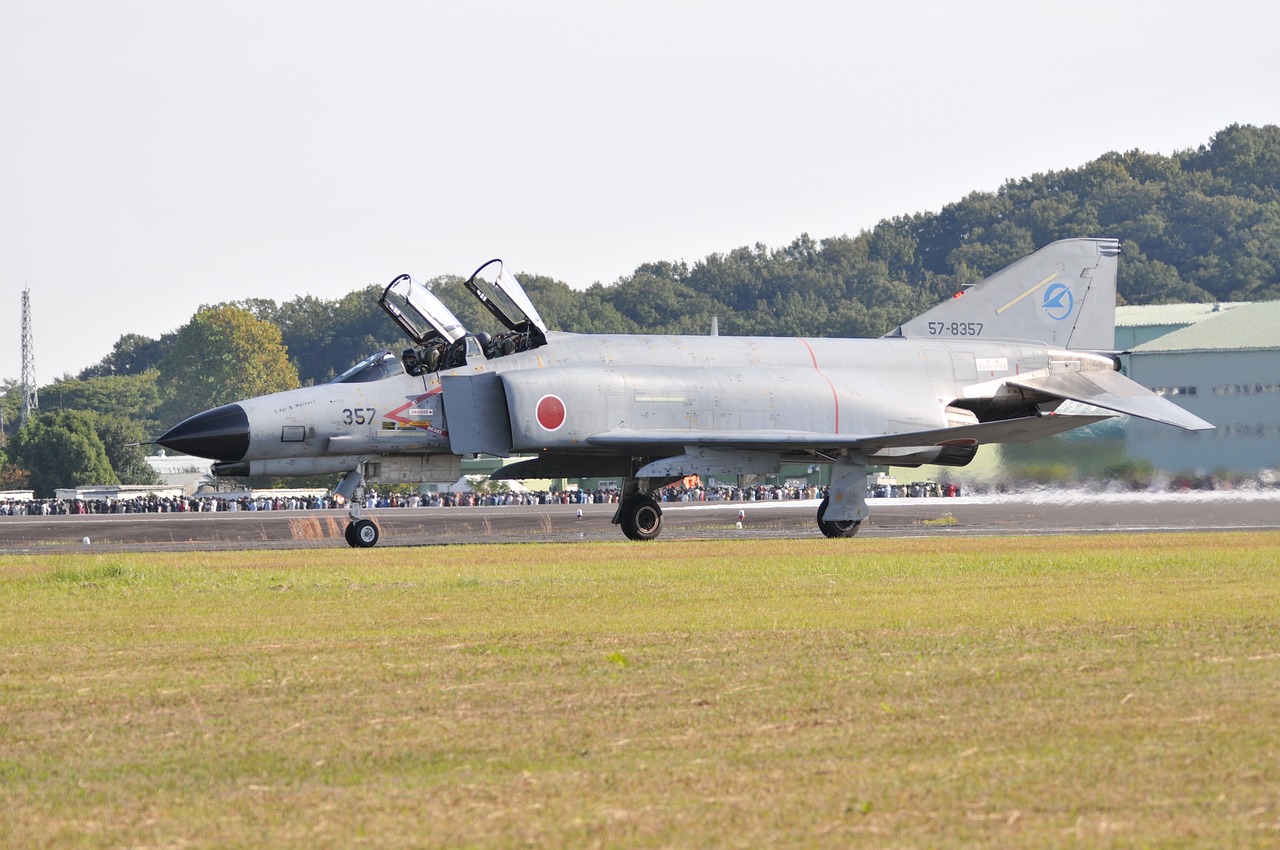
Impact of International Law
International maritime law serves as the backbone of maritime defense strategies, providing a framework that governs the rights and responsibilities of nations on the high seas. One of the most significant legal instruments in this domain is the United Nations Convention on the Law of the Sea (UNCLOS), which outlines guidelines for the use of ocean resources, navigation rights, and environmental protection. This convention is not just a set of rules; it acts as a crucial mechanism for conflict resolution and cooperation among nations. Imagine it as a global constitution for the seas, where every country has a stake in ensuring its adherence.
As countries navigate the complexities of territorial disputes, particularly in regions like the South China Sea, international law becomes a vital tool for asserting claims and countering aggressive actions. For instance, when disputes arise, nations often turn to UNCLOS to justify their positions, whether it's regarding exclusive economic zones (EEZs) or continental shelf rights. The legal clarity provided by such frameworks can either mitigate tensions or exacerbate conflicts, depending on how nations choose to interpret and apply these laws.
Furthermore, international law fosters cooperation through treaties and agreements that promote shared interests in maritime security. Collaborative efforts, such as joint naval exercises or anti-piracy operations, often rely on established legal frameworks to ensure that all parties are on the same page. These agreements not only enhance operational effectiveness but also build trust among nations, which is essential in a world where maritime threats are increasingly transnational.
However, the enforcement of international maritime law presents its own set of challenges. The seas are vast and often lawless, making it difficult for nations to monitor compliance effectively. This is where the role of international organizations, such as the International Maritime Organization (IMO), becomes crucial. They help to establish standards and provide a platform for dialogue among member states, ensuring that maritime laws are not just theoretical concepts but practical tools for maintaining order at sea.
In summary, the impact of international law on maritime defense strategies cannot be overstated. It shapes how nations interact, how disputes are resolved, and how collective security is maintained. As we move forward, the evolving geopolitical landscape will test these legal frameworks, demanding adaptability and commitment from nations to uphold the principles that govern our oceans.
- What is the United Nations Convention on the Law of the Sea (UNCLOS)? UNCLOS is an international treaty that outlines the rights and responsibilities of nations regarding the use of the world's oceans, covering various aspects such as navigation, resource management, and environmental protection.
- How does international law impact maritime disputes? International law provides a legal framework for nations to assert their claims and resolve disputes peacefully, helping to prevent conflicts over territorial waters and resources.
- What role do international organizations play in maritime law? Organizations like the International Maritime Organization (IMO) help establish standards and facilitate cooperation among nations to ensure adherence to maritime law.
- Why is international law important for maritime security? It promotes cooperation, establishes guidelines for conflict resolution, and helps maintain order at sea, which is critical in an era of increasing maritime threats.

Role of Alliances and Partnerships
The landscape of maritime defense is not just shaped by individual nations but is significantly influenced by alliances and partnerships. These collaborative efforts among countries are essential for enhancing collective security and addressing shared challenges in contested waters. Imagine a group of friends banding together to protect each other from bullies; that’s essentially what maritime alliances aim to achieve on a global scale. By pooling resources, intelligence, and strategic capabilities, nations can create a formidable front against potential threats.
One of the most prominent examples of such collaboration is the North Atlantic Treaty Organization (NATO), which extends its defense strategies into maritime domains. NATO’s maritime operations not only focus on traditional defense but also on crisis management and cooperative security, which are vital in today’s rapidly changing geopolitical environment. The alliance conducts regular naval exercises and joint operations, enhancing interoperability among member states and demonstrating a united front in maintaining maritime stability.
Moreover, regional partnerships play a crucial role in addressing specific maritime security concerns. For instance, in the Asia-Pacific region, nations like the United States, Japan, Australia, and India have formed the Quad alliance, which aims to ensure a free and open Indo-Pacific. This partnership has led to collaborative initiatives such as joint naval exercises and intelligence sharing, which are critical in countering aggressive maritime postures from other powers. The importance of these alliances cannot be overstated, as they provide a platform for dialogue and conflict resolution, reducing the likelihood of misunderstandings that could escalate into larger confrontations.
In addition to military cooperation, alliances also foster information sharing, which is vital in today’s complex security landscape. The exchange of intelligence regarding maritime threats, such as piracy or illegal fishing, allows nations to respond swiftly and effectively. As the saying goes, "knowledge is power," and in maritime defense, this couldn't be more accurate. By working together, nations can enhance their situational awareness and operational effectiveness, ultimately leading to a more secure maritime environment.
However, the effectiveness of these alliances hinges on mutual trust and shared objectives. Countries must be willing to invest in each other’s security and engage in transparent communication. This is where the challenge often lies; differing national interests can sometimes complicate partnerships. Yet, history has shown that when nations unite for a common purpose, they can achieve remarkable outcomes. Whether it’s countering piracy off the coast of Somalia or ensuring safe passage through the Strait of Hormuz, the collaborative efforts of alliances are crucial in shaping the future of maritime defense.
In conclusion, the role of alliances and partnerships in maritime defense is indispensable. They not only enhance collective security but also foster cooperation and understanding among nations. As the world becomes increasingly interconnected, the need for robust maritime alliances will only grow, ensuring that nations can navigate the turbulent waters of global security together.
- What are maritime alliances? Maritime alliances are collaborative agreements between nations to enhance collective security and address shared challenges in maritime domains.
- How do alliances improve maritime security? Alliances improve maritime security through joint exercises, intelligence sharing, and coordinated responses to threats, creating a united front against potential aggressors.
- What is NATO's role in maritime defense? NATO conducts maritime operations focused on defense, crisis management, and cooperative security, enhancing interoperability among member states.
- Why are regional partnerships important? Regional partnerships address specific maritime security concerns and foster collaboration among countries in a particular geographic area, enhancing overall security.

Environmental Considerations in Maritime Defense
The intersection of environmental concerns and maritime defense strategies is becoming increasingly crucial in today's world. As climate change continues to reshape our oceans and coastlines, military and defense planners must consider how these changes affect both operational capabilities and security threats. Imagine a world where rising sea levels not only threaten coastal cities but also create new maritime routes and opportunities for conflict. This is the reality we face, and it demands innovative thinking and proactive measures.
One of the most pressing issues is the impact of climate change on naval operations. Changing weather patterns can affect everything from the availability of resources to the navigability of certain waterways. For instance, the melting Arctic ice is opening up previously inaccessible shipping routes, which could lead to increased competition among nations vying for control over these new pathways. This scenario is not just about trade; it’s about national security and the potential for conflict over resources that are becoming scarce due to environmental changes.
Moreover, the environmental degradation caused by military activities can exacerbate existing tensions. Oil spills, waste disposal, and the destruction of marine habitats from naval exercises can lead to international disputes and damage diplomatic relations. Thus, it is essential for maritime defense strategies to include sustainable practices that minimize environmental impact. This could involve investing in cleaner technologies and adopting protocols that ensure military exercises do not harm delicate ecosystems.
To effectively integrate environmental considerations, nations must collaborate on joint initiatives that promote sustainability in maritime operations. Here are a few key areas where cooperation is vital:
- Research and Development: Investing in technologies that reduce the carbon footprint of naval operations.
- Environmental Monitoring: Implementing systems to monitor ecological changes and assess the impacts of military activities.
- Policy Frameworks: Creating international agreements that establish guidelines for environmentally responsible defense practices.
In conclusion, the future of maritime defense is not only about military might but also about environmental stewardship. By recognizing the importance of ecological factors, nations can develop strategies that not only protect their interests but also preserve the maritime environment for future generations. As we navigate these complex waters, let’s remember that a healthy ocean is a secure ocean.
Q1: How does climate change affect maritime security?
A1: Climate change can alter weather patterns, create new shipping routes, and increase competition for resources, all of which can lead to heightened tensions and conflicts.
Q2: What role does international law play in maritime environmental protection?
A2: International law, such as the United Nations Convention on the Law of the Sea, sets guidelines for the rights and responsibilities of nations in protecting the marine environment.
Q3: How can military operations be made more environmentally friendly?
A3: By investing in cleaner technologies, adopting sustainable practices, and implementing strict environmental protocols during military exercises, nations can reduce their ecological footprint.

Cybersecurity in Maritime Operations
In today's interconnected world, the maritime domain has become increasingly reliant on technology, making cybersecurity a critical component of maritime defense strategies. Just like a ship needs a sturdy hull to withstand the waves, maritime operations require robust cybersecurity measures to protect against the rising tide of cyber threats. From autonomous vessels to sophisticated navigation systems, the digital transformation of maritime operations has brought about significant advantages, but it has also opened the door to vulnerabilities that can be exploited by malicious actors.
Imagine a scenario where a hacker gains unauthorized access to a ship's navigation system. The consequences could be catastrophic, leading to collisions, environmental disasters, or even hijackings. Therefore, safeguarding critical infrastructure from cyber threats is not just an option; it's a necessity. The maritime industry must prioritize the development and implementation of comprehensive cybersecurity frameworks to mitigate risks. This includes not only protecting hardware and software but also ensuring that personnel are trained to recognize and respond to cyber incidents.
One of the key areas of focus in maritime cybersecurity is the protection of communication systems. Ships rely heavily on satellite communications and data exchange with port authorities, which makes them susceptible to interception and manipulation. To combat this, organizations are increasingly adopting advanced encryption methods and secure communication protocols. Additionally, regular security audits and vulnerability assessments are essential to identify and address potential weaknesses in systems.
Moreover, the human factor cannot be overlooked. Cybersecurity awareness training is crucial for all personnel involved in maritime operations. Just as a captain must know the ship's layout and emergency procedures, crew members must be educated about the potential cyber threats and how to respond effectively. This training should be ongoing, adapting to new threats as they emerge and ensuring that everyone understands their role in maintaining cybersecurity.
As we look to the future, the integration of artificial intelligence (AI) and machine learning into maritime operations will play a significant role in enhancing cybersecurity. These technologies can analyze vast amounts of data in real-time, identifying anomalies and potential threats before they escalate. By leveraging AI, maritime organizations can create a proactive cybersecurity posture that not only defends against current threats but also anticipates future ones.
In summary, the intersection of cybersecurity and maritime operations is a complex and evolving landscape. As the industry continues to embrace technological advancements, the importance of securing these systems cannot be overstated. The maritime community must work collaboratively to develop best practices, share information on threats, and invest in the necessary resources to protect against cyber risks. After all, a secure maritime environment is essential for ensuring the safety of navigation, protecting national interests, and maintaining global trade.
- What are the main cyber threats facing maritime operations?
Cyber threats can include hacking of navigation systems, ransomware attacks on port facilities, and data breaches involving sensitive information. - How can maritime organizations improve their cybersecurity?
Organizations can enhance cybersecurity by implementing regular security audits, employee training programs, and adopting advanced encryption and secure communication protocols. - What role does technology play in maritime cybersecurity?
Technology, such as AI and machine learning, can help identify and mitigate cyber threats in real-time, enhancing the overall security posture of maritime operations.
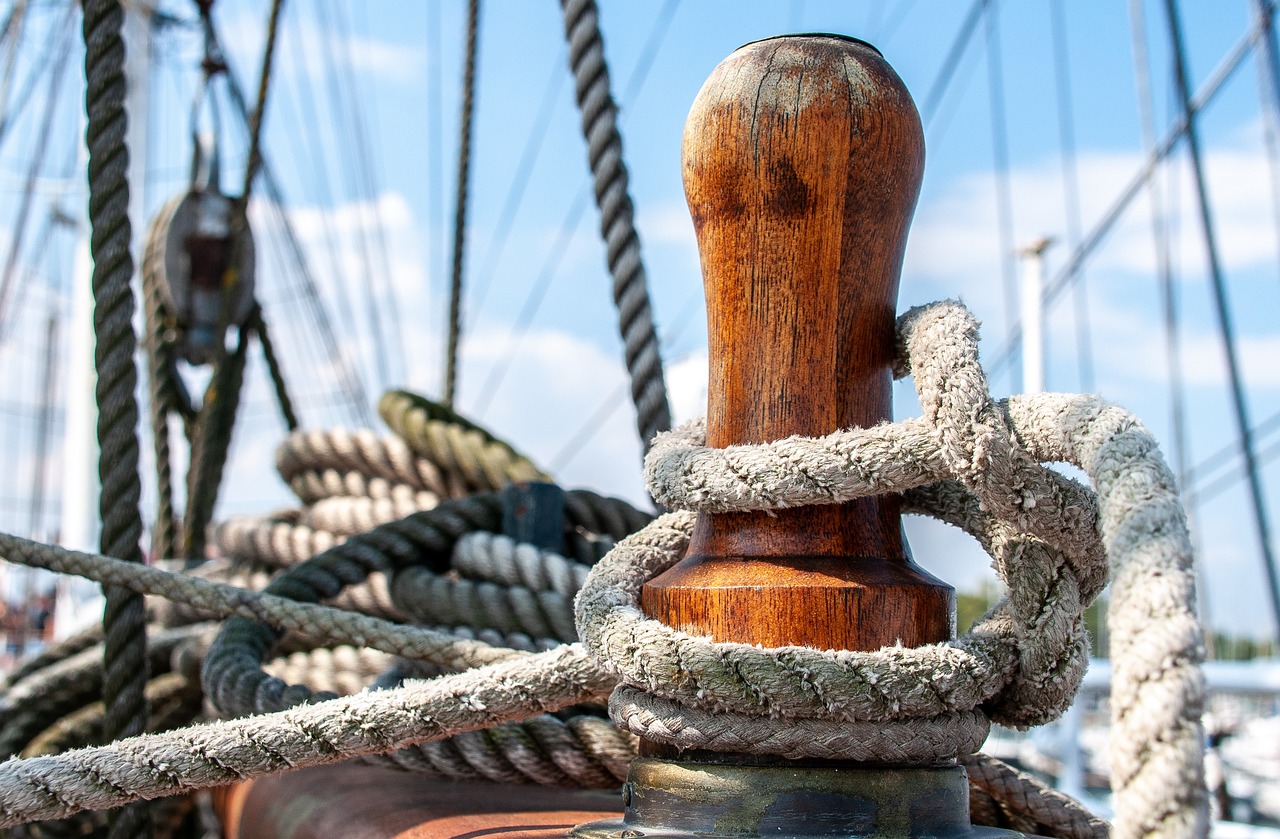
Training and Capacity Building
In today's rapidly evolving maritime landscape, for maritime forces are not just beneficial; they are absolutely essential. As nations face increasingly complex security challenges, investing in the skills and knowledge of personnel becomes a top priority. Imagine a ship navigating through treacherous waters without a skilled captain at the helm—it's a recipe for disaster! Similarly, without well-trained personnel, even the most advanced technologies can falter.
One of the key aspects of effective training programs is their ability to adapt to new technologies. With innovations like autonomous vessels and advanced surveillance systems becoming commonplace, it's crucial that maritime forces are equipped to operate and maintain these tools. This means not only understanding how to use them but also being able to troubleshoot and innovate on the fly. For instance, consider the role of simulations in training; they provide a safe environment for personnel to experience real-world scenarios without the associated risks. This hands-on approach fosters confidence and competence.
Moreover, capacity building extends beyond just technical skills. It involves developing leadership qualities and fostering a culture of collaboration among different branches of the military and allied nations. This is particularly important in joint exercises where forces from multiple countries work together to tackle common threats. Effective communication and teamwork can make all the difference in high-stakes situations.
To illustrate the importance of this training, let's look at a table outlining key components of successful maritime training programs:
| Training Component | Description |
|---|---|
| Technical Skills | Hands-on training with the latest maritime technologies, including navigation systems and drones. |
| Leadership Development | Programs designed to enhance decision-making and crisis management skills among personnel. |
| Joint Exercises | Collaborative drills with allied forces to improve interoperability and communication. |
| Cybersecurity Training | Specialized courses focused on protecting maritime operations from cyber threats. |
In addition to structured training programs, ongoing education and professional development play a vital role in maintaining a capable maritime force. This could involve attending workshops, participating in international conferences, or even pursuing advanced degrees in maritime studies. The more knowledge and skills personnel acquire, the better prepared they will be to face future challenges.
Ultimately, the success of maritime defense strategies hinges on the readiness and resilience of the forces that implement them. As we look to the future, it’s clear that a commitment to training and capacity building will be a cornerstone of effective maritime security. Just as a well-oiled machine relies on each part working in harmony, so too does our maritime defense rely on the continuous development of its personnel.
- Why is training important for maritime forces?
Training ensures that personnel are equipped to handle advanced technologies and complex security challenges. - What types of training are most effective?
Hands-on training, leadership development, joint exercises, and cybersecurity training are all critical components. - How can nations collaborate in training efforts?
Through joint exercises, shared training programs, and international workshops, nations can enhance their maritime capabilities together.

Future Trends in Maritime Defense
This article explores emerging maritime defense strategies and their implications for global security, highlighting technological advancements, geopolitical shifts, and the importance of international cooperation in maintaining maritime stability.
Innovative technologies such as autonomous vessels, drones, and advanced surveillance systems are reshaping maritime defense strategies, enhancing situational awareness and operational effectiveness in securing national interests at sea.
The evolving geopolitical landscape, characterized by power shifts and regional tensions, significantly impacts maritime security strategies, necessitating adaptive responses to safeguard national interests and maintain global stability.
Ongoing regional conflicts, such as those in the South China Sea, highlight the critical need for robust maritime defense strategies to address territorial disputes and protect vital shipping routes.
International maritime law, including the United Nations Convention on the Law of the Sea, plays a crucial role in shaping defense strategies, guiding nations in their rights and responsibilities on the high seas.
Collaborative defense efforts among nations, through alliances like NATO or regional partnerships, enhance collective maritime security and deter potential threats in contested waters.
As climate change impacts maritime environments, defense strategies must integrate environmental considerations, ensuring sustainable practices while addressing emerging security challenges related to resource competition.
With increasing reliance on technology, cybersecurity has become a vital aspect of maritime defense, protecting critical infrastructure from cyber threats that could disrupt maritime operations and national security.
Investing in training and capacity building for maritime forces is essential for adapting to new technologies and evolving threats, ensuring that personnel are equipped to handle complex maritime security challenges.
As we look ahead, the landscape of maritime defense is poised for transformation, driven by a confluence of technological advances and shifting geopolitical dynamics. One of the most significant trends is the integration of artificial intelligence (AI) into maritime operations. AI systems are being developed to enhance decision-making processes, allowing for quicker responses to threats and improved operational efficiency. Imagine a fleet of autonomous vessels, equipped with AI, capable of patrolling vast ocean territories without human intervention. This not only reduces the risk to personnel but also allows for continuous surveillance of critical maritime zones.
Furthermore, the rise of big data analytics is revolutionizing how nations monitor and respond to maritime security threats. By analyzing vast amounts of data from various sources, including satellites, drones, and on-ground sensors, defense agencies can gain unprecedented insights into maritime activities. This capability enables them to predict potential conflicts and respond proactively, rather than reactively. In essence, big data is becoming the compass that guides maritime strategies.
Another emerging trend is the increasing focus on interoperability among allied nations. As threats become more complex and multifaceted, the ability to operate seamlessly across different platforms and systems is crucial. Joint exercises and operations that emphasize shared protocols and communication standards are essential for building trust and enhancing collective security. This collaborative approach not only strengthens alliances but also ensures that nations are better prepared to tackle common challenges.
Moreover, the impact of climate change cannot be overlooked. As the environment continues to change, maritime defense strategies will need to adapt to new realities, such as rising sea levels and shifting shipping routes. Nations will have to balance their defense needs with environmental sustainability, leading to innovative solutions that protect both national interests and the planet.
In conclusion, the future of maritime defense is not just about adopting new technologies; it’s about embracing a holistic approach that integrates AI, big data, interoperability, and environmental considerations. As nations navigate these changes, the ability to innovate and adapt will be the cornerstone of effective maritime strategies that ensure global security.
- What are the key technologies shaping the future of maritime defense?
Technologies such as artificial intelligence, big data analytics, autonomous vessels, and advanced surveillance systems are key drivers of change in maritime defense. - How does climate change affect maritime defense strategies?
Climate change impacts maritime environments, necessitating strategies that consider both security and environmental sustainability. - Why is international cooperation important in maritime defense?
International cooperation enhances collective security, allowing nations to pool resources and share intelligence to address common threats effectively.
Frequently Asked Questions
- What are the emerging technologies in maritime defense?
Emerging technologies in maritime defense include autonomous vessels, drones, and advanced surveillance systems. These innovations enhance situational awareness and operational effectiveness, allowing nations to secure their interests at sea more efficiently.
- How do geopolitical influences affect maritime security?
The evolving geopolitical landscape, marked by power shifts and regional tensions, significantly impacts maritime security strategies. Nations must adapt their responses to safeguard their interests and maintain global stability amidst these changes.
- What role does international law play in maritime defense strategies?
International maritime law, particularly the United Nations Convention on the Law of the Sea, is crucial in shaping defense strategies. It guides nations on their rights and responsibilities on the high seas, helping to resolve disputes and maintain order.
- Why is cybersecurity important in maritime operations?
As reliance on technology grows, cybersecurity becomes vital in maritime defense. It protects critical infrastructure from cyber threats that could disrupt operations and compromise national security, ensuring safe and secure maritime activities.
- How can nations collaborate for better maritime security?
Collaborative defense efforts through alliances like NATO or regional partnerships enhance collective maritime security. These alliances enable nations to share resources, intelligence, and strategies, deterring potential threats in contested waters.
- What are the environmental considerations in maritime defense?
As climate change affects maritime environments, defense strategies must integrate environmental considerations. This ensures sustainable practices while addressing security challenges related to resource competition and environmental degradation.
- What future trends should we expect in maritime defense?
Future trends in maritime defense include increased automation and the use of artificial intelligence. Anticipating these changes will be crucial for developing effective strategies to tackle both current and emerging security challenges in global waters.
- Why is training and capacity building essential for maritime forces?
Investing in training and capacity building for maritime forces is essential to adapt to new technologies and evolving threats. Proper training ensures personnel are equipped to handle complex maritime security challenges effectively.



